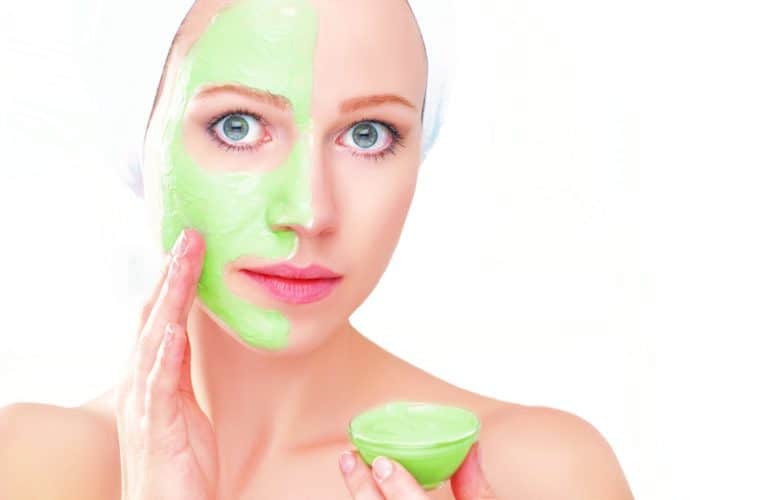Skincare is one area where community pharmacy can play an important role since pharmacists can not only offer pharmaceutical skincare products, but can provide advice and information.
Since the skin is the body’s largest organ, and its appearance can have an effect on a patient’s health and wellbeing, pharmacists can play a vital role in offering advice and information to patients, who may not have access to a dermatologist, or who do not want to wait for a GP appointment.
Skincare is, after all, not just about beauty products, but is also about offering treatments for good skin health. As such, pharmacies provide the perfect go-to destination for skincare advice.
Recent data from market research company Kantar Worldpanel recently highlighted the value that community pharmacy offers in terms of supporting customers’ skincare needs, with findings showing that, to date this year, the sector has accounted for almost 50 per cent of overall skincare sales.
Where pharmacy can be particularly strong in this sector in that it can offer a range of professional, pharmaceutical skincare products. These products differ from ‘standard’, store-bought skincare brands in that the ingredients are often more potent and are often mixed to ensure that the correct active ingredients work together.
Store-bought or department store-bought skincare
The majority of skincare products in this category generally contain a similar concentration of ingredients. Over-the-counter (OTC) skincare products generally have to deal with a wide range of concerns, and, as such, will often comprise inactive compounds, fragrances and preservatives. OTC products can say they have peptides, retinol, vitamin C and/or antioxidants in them, but the concentration is often so small that the benefits for the skin are often minimal.
OTC products only work the skin’s outer most layer – the epidermis. As such, they generally sit on the surface of the skin and don’t penetrate the layers.
Pharmacy-only skincare
Approximately five per cent of skincare products are considered pharmaceutical grade. Unlike OTC skincare products, pharmaceutical products work with the subcutaneous tissue layer in the skin. These products, which have to be backed up by scientific studies, have to demonstrate beneficial effects on the function or structure of the skin.
Very often, skin problems – such as rosacea or dry skin – have clinical issues and so it is vitally important that pharmacy staff are well trained in skincare. Pharmacy teams can be highly skilled in issues relating to skincare and should be trained to provide proper advice and recommendations for patients when it comes to using pharmaceutical products.
Staff, for example, who are aware of the differences between dry skin and eczema, will know to suggest using products with a hydrocortisone base rather than a simple moisturiser.
They can also advise sufferers on how to avoid trigger factors, explain the benefits of the products. They can also encourage patients to make lifestyle changes that will have a positive effect on the skin.
One country, which is particularly rich in its pharmaceutical product offering is France. Indeed, French pharmacies ONLY provide such skincare, and many young girls receive a trip to a dermatologist as their twelfth or thirteenth birthday present, such is the value put on the correct skincare for various types of skin.
Perhaps unsurprisingly, therefore, many of the leading pharmacy brands are French in origin!
Among the most globally popular are:
Bioderma
Once considered a ‘secret’ brand for French girls, the company shot to global fame when it launched its micellar solution in the 1990s. The company actually boasts more than 50 years of success, since it has been creating science-led formulas for hair and skin since the 1970s.
La Roche-Posay
One of La Roche-Posay’s major claims to fame is that the brand partners with dermatologists to create formulations that work. Often recommended by dermatologists, all of the brand’s products are both non-comedogenic and are tested on sensitive skin.
Vichy
Founded in 1931 by Prosper Haller, the Vichy brand has been using mineral water from the volcanic region of Auvergne for decades. The brand’s success lies in the water’s natural ability to reinforce the skin’s natural defences. As with La Roche-Posay, the brand works with dermatologists and allergy experts to ensure that its products are ideal for even the most sensitive of complexions.
Avène
The story of the Avène brand really is something else! Back in the 1700s, so the story goes, a horse with troubled skin was cured after drinking the water while swimming in a thermal spring in Avène. Whether the story is true or not, Avène became the site of a dermatological facility where patients would come to be cured of various skin ailments.
Embryolisse
Embryolisse really does have a medical background! The brand was actually created in a Parisian hospital in 1950 as a way of hydrating and caring for patients’ skin and was subsequently introduced to French pharmacies.
SVR Laboratories
Founded in 1962, SVR Laboratories was one of the original brands to come at skincare from a scientific, pharmaceutical angle, primarily because it was created by two pharmacists to cater specifically for those with sensitive skin.



